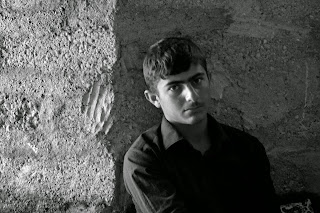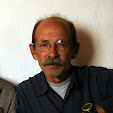In August 2014 the self-proclaimed
Islamic State attacked the Yezidis in their heartland in northern Iraq. The black flags showed no mercy. Hundreds of thousands of Yezidis are now are
refugees, among them good friends of mine.
I recently went back to see them; the reunions were reaffirming.
But all around the other stories, some of which I heard, filled the air with an invisible weight. The tellers were compelled to tell, and all were compelled to listen. Everyone has a story; everyone is a story.
(The following names have been changed.)
Khider escaped from the jihadists 3 weeks before we met. He and other Yezidis, initially numbering 800 in his group, were moved from town to town during his near-eight months of captivity. Fear built their walls of imprisonment, and his recollections were a tangle of rusty barbed wire: An old woman accused of being a witch beheaded; his sons being taken away to be converted to Islam and trained as jihadists; threats of being killed for little or no reason. “I was not afraid of dying. I was afraid of being tortured,” Khider said as he lit yet another cigarette.
Young teen-aged sisters Amsha and Rêsan entered the tent with uncertainty. They sat on their haunches and avoided eye contact. Knowing that the girls were not going to talk, their uncle chimed in to tell their story for them. The girls had been recently release after being held captive by the Islamic State jihadists since last August. Someone had paid a ransom, but that was not discussed. While in captivity Amsha pretended she was retarded, her lazy left eye helping the ruse. Following suit, younger Rêsan chopped her hair short. They were not sold and were returned unmolested for which all were grateful. Nobody knows where their parents are, the uncle said. The girls' eyes remained locked on the ground.
Unlike most others, Ferhan was immediately engaging in recounting his story. He and his family ran to the mountain when they heard of the Islamic State’s barbaric attacks on the other side of Mount Sinjar. They and thousands of others took refuge at a spring tucked in the mountain, “drinking only drops of water.” After 2 days they were reduced to eating the low quality grain intended for sheep, “… and finally all we had was leaves and grass to eat.” After a week an escape route was opened up through nearby Syria. Ferhan’s family joined the Biblical throngs crossing the brittle landscape of summer. Some died.
Faisel silently entered the room of the half-completed house, and immediately sat on a thread-worn mat by door. He was thin with a young man’s soft mustache, and the familiar vacant look from hollow eyes. He and his family tried to escape the jihadists on the first night of the attack, fleeing up Mount Sinjar’s southern steep zig-zagged road. His parents and five of his siblings were captured, and there has been no news from them since.
There was an edgeless matter-of-factness in the voices that only faintly suggested their sufferings, and their deeply shadowed futures.










